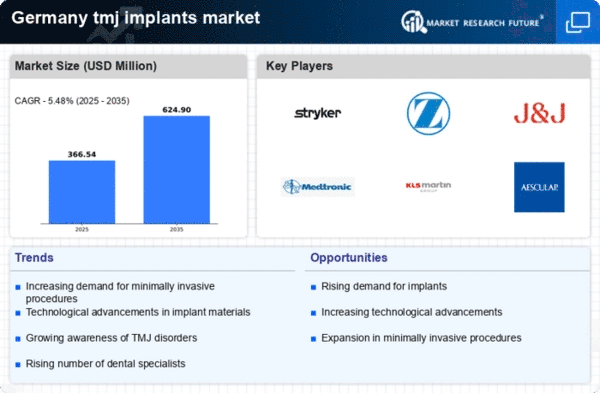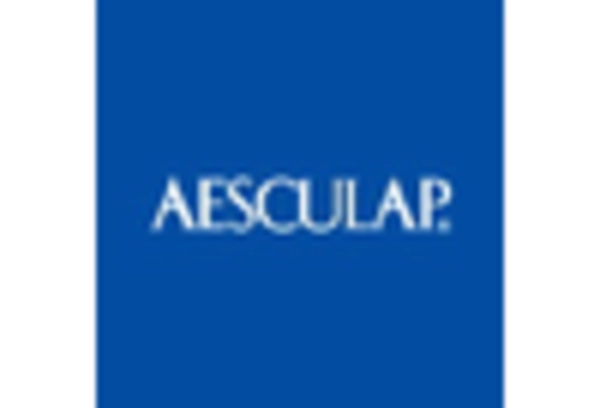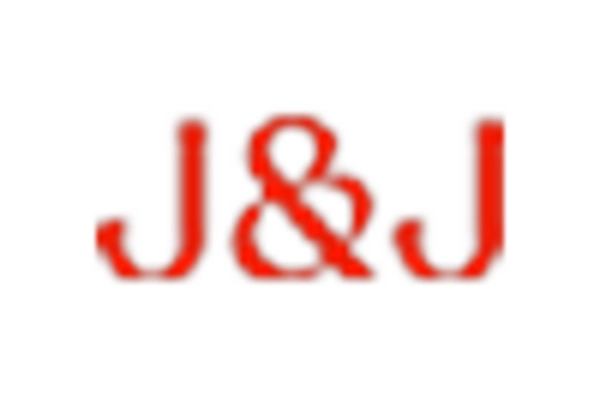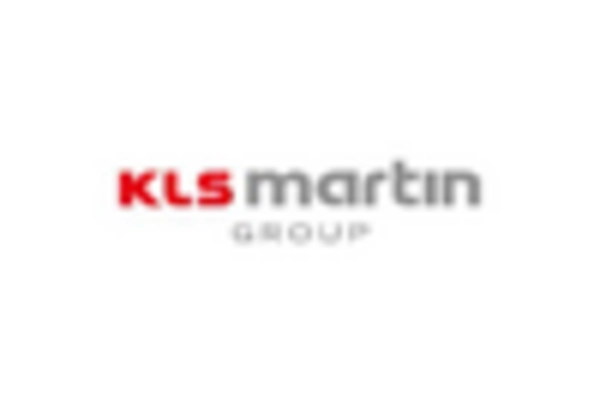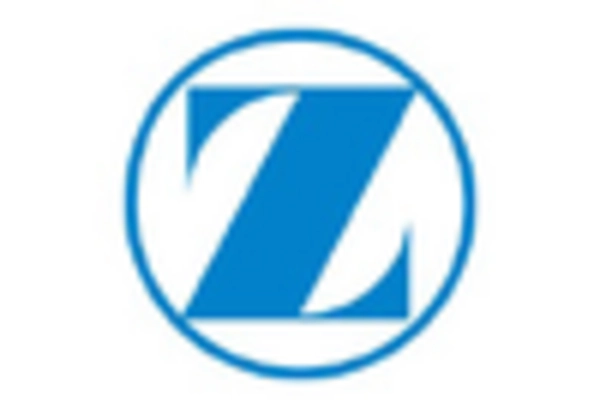Rising Incidence of TMJ Disorders
The increasing prevalence of temporomandibular joint (TMJ) disorders in Germany is a notable driver for the tmj implants market. Recent studies indicate that approximately 10-15% of the population experiences TMJ-related issues, leading to a heightened demand for effective treatment options. As awareness of these disorders grows, patients are more likely to seek surgical interventions, including implants. This trend is further supported by the aging population, which is more susceptible to joint-related ailments. Consequently, the tmj implants market is expected to expand as healthcare providers respond to this rising incidence by offering advanced implant solutions tailored to individual patient needs.
Supportive Regulatory Environment
The regulatory framework in Germany is becoming increasingly supportive of innovations in the tmj implants market. Regulatory bodies are streamlining approval processes for new implant technologies, which encourages manufacturers to invest in research and development. This supportive environment not only facilitates the introduction of advanced products but also ensures that they meet stringent safety and efficacy standards. As a result, the market is likely to witness a surge in new implant offerings, catering to diverse patient needs. This regulatory support is essential for fostering innovation and enhancing the overall growth trajectory of the tmj implants market.
Advancements in Implant Technology
Technological innovations in implant design and materials are significantly influencing the tmj implants market. Recent developments have led to the creation of biocompatible materials that enhance the longevity and effectiveness of implants. For instance, the introduction of 3D printing technology allows for customized implants that fit the unique anatomy of each patient, improving surgical outcomes. Furthermore, minimally invasive surgical techniques are becoming more prevalent, reducing recovery times and enhancing patient satisfaction. As these advancements continue to evolve, they are likely to attract more patients seeking effective solutions for TMJ disorders, thereby driving market growth in Germany.
Growing Awareness of Treatment Options
The increasing awareness among patients regarding available treatment options for TMJ disorders is a vital driver for the tmj implants market. Educational campaigns and outreach programs by healthcare providers have contributed to a better understanding of TMJ conditions and the potential benefits of surgical interventions. As patients become more informed, they are more likely to pursue treatment options, including implants, which can provide long-term relief from pain and dysfunction. This shift in patient behavior is expected to stimulate demand within the market, as more individuals seek consultations and surgical solutions for their TMJ issues.
Increased Investment in Healthcare Infrastructure
Germany's commitment to enhancing its healthcare infrastructure plays a crucial role in the growth of the tmj implants market. The government has been investing significantly in healthcare facilities, ensuring that they are equipped with the latest technologies and skilled professionals. This investment not only improves access to surgical procedures but also fosters an environment conducive to research and development in implant technologies. As hospitals and clinics upgrade their capabilities, the availability of tmj implants is expected to rise, meeting the growing demand from patients. This trend indicates a positive outlook for the market as healthcare systems adapt to evolving patient needs.


